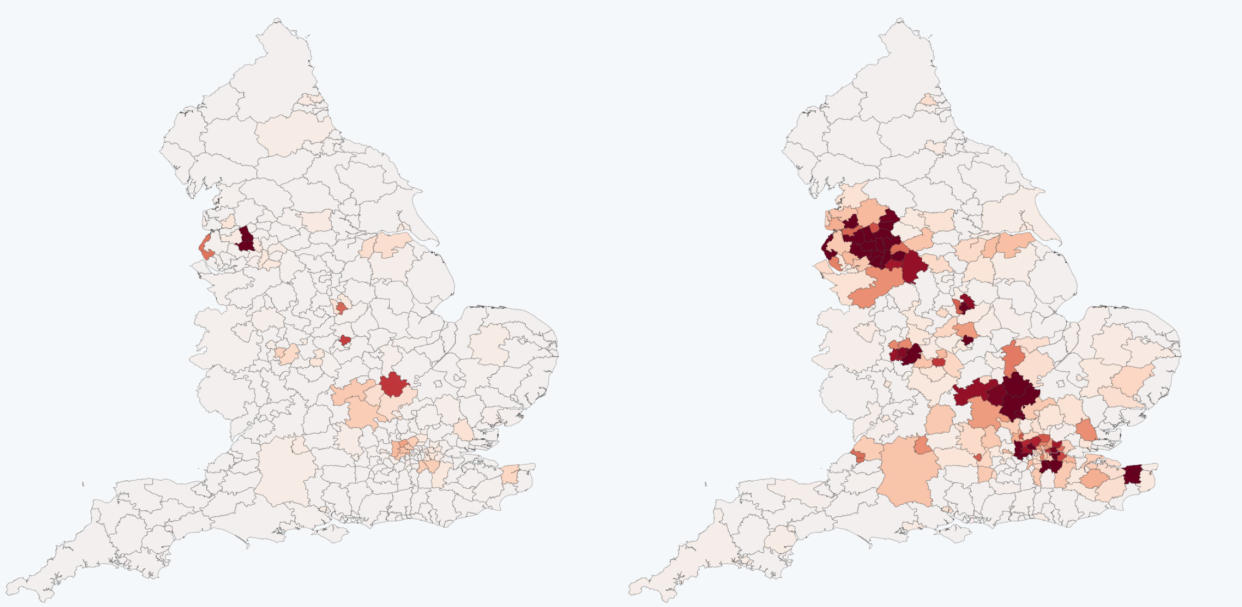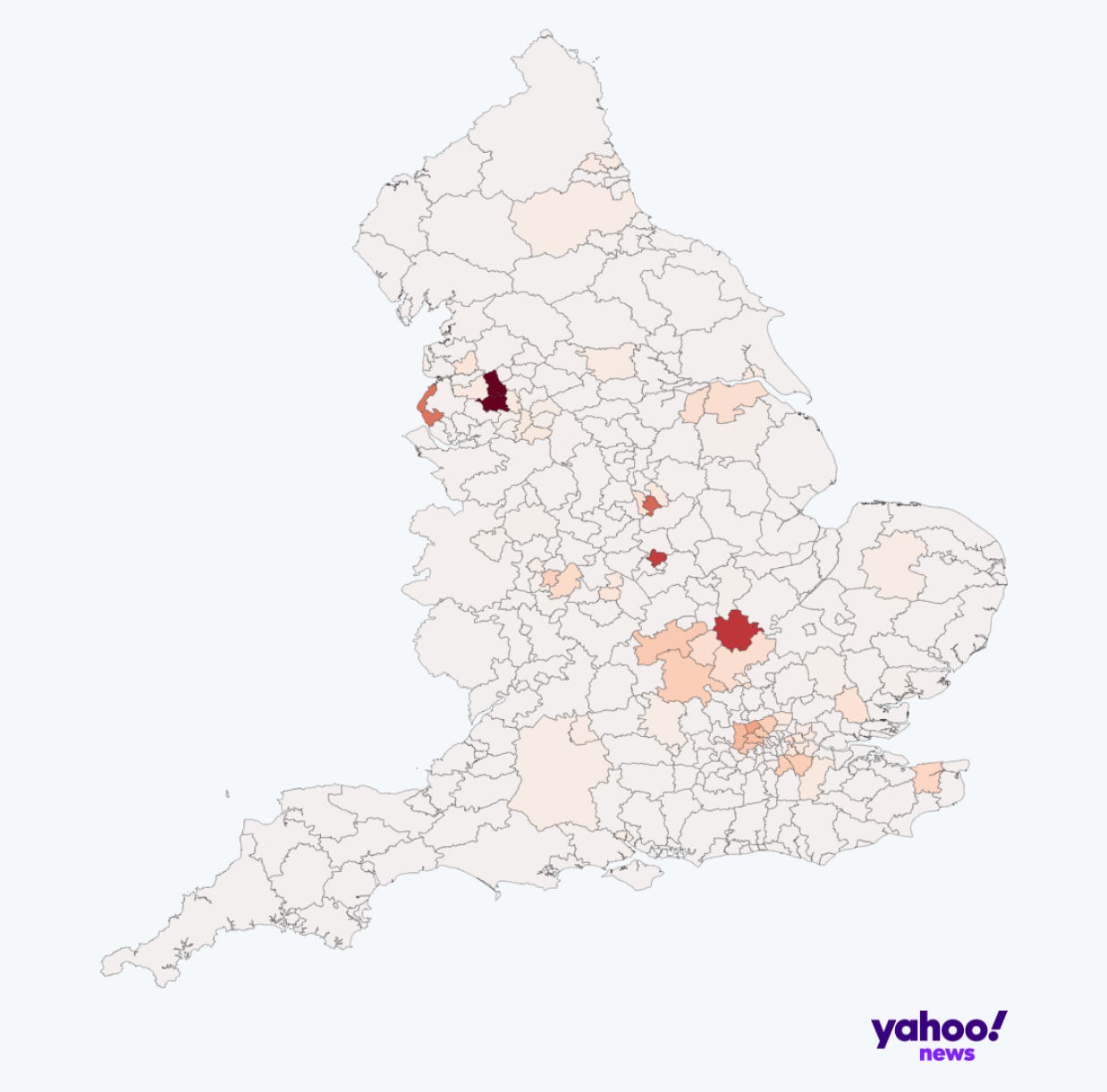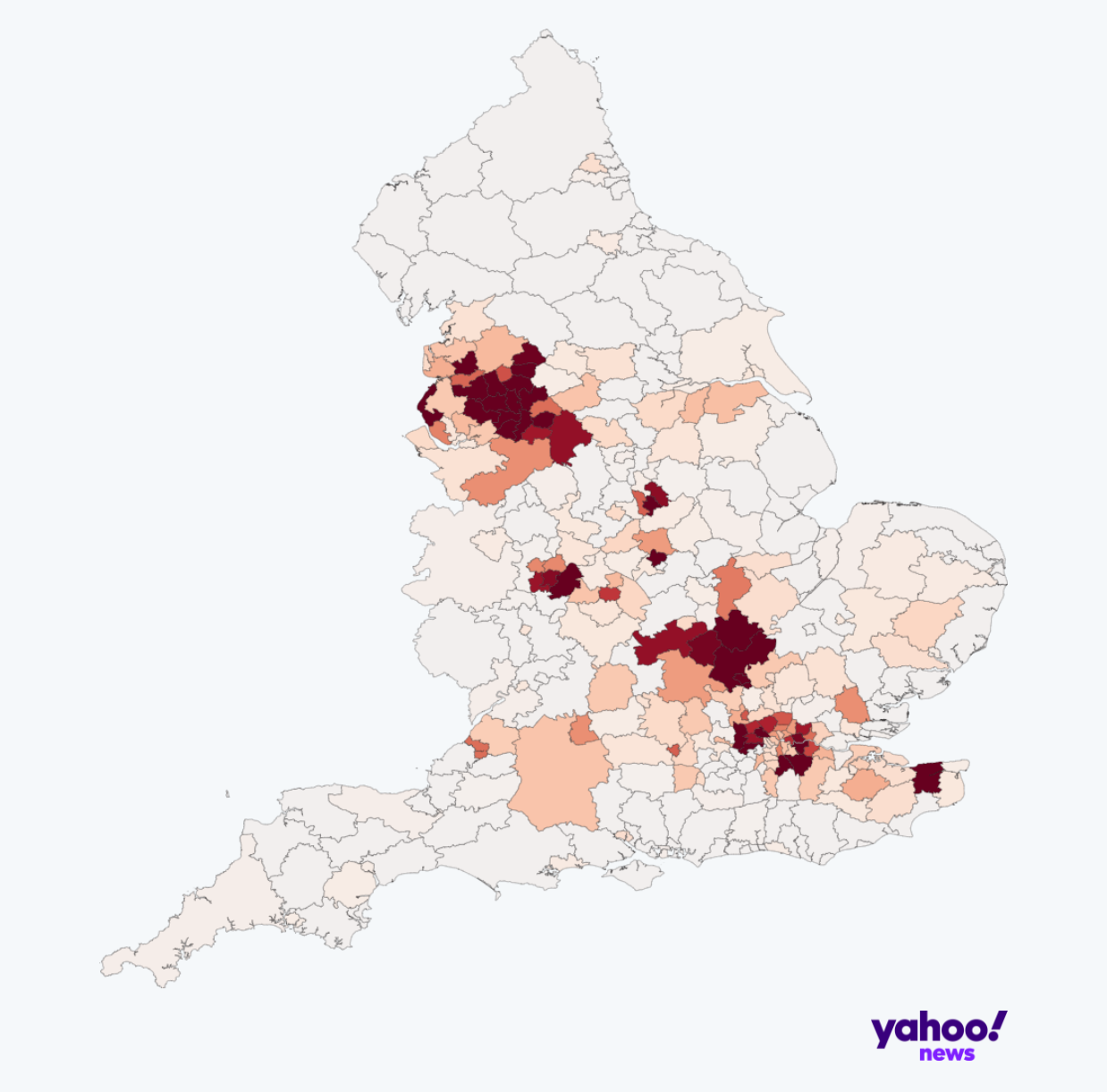Maps show worrying spread of Indian variant in just three weeks
These two maps shows how the Indian coronavirus variant – renamed the 'delta' variant by the World Health Organization - has spread in the last three weeks.
The B1.617.2 strain has brought a surge of new cases in areas of England, especially the North West, Midlands and South East.
Recent data suggests it could be 66% more transmissible than the Kent, or 'alpha' variant, which wreaked havoc across the UK over the winter.

The variant's spread has cast doubt over whether planned lockdown lifting on 21 June can go ahead as planned and has sparked fears of an emerging third wave.
Overall Covid cases have been above 3,000 a day for the past six days.
But Public Health England announced on Thursday that delta variant cases had doubled in the space of a week to nearly 7,000.
According to the Wellcome Sanger Institute, 148 local authority areas in England have now recorded five or more delta variant cases, compared to 38 weeks ago.
The latest figures from the organisation show a recorded total of 3019 cases in the week leading up to 22 May - up from 380 three weeks earlier.

The left-hand map above shows where the delta variant cases were recorded on 1 May.
This compares to the map below showing thousands more recorded cases by 22 May.
The Sanger Institute's findings are based on community spread so tests from recent travellers or special studies are excluded from the data.

Bolton has seen by far the most delta variant cases in England, reporting 2060 in total, according to the institute's findings.
The worst hit areas are:
Bolton, 2060
Blackburn with Darwen, 672
Bedford, 536
Leicester, 280
Manchester, 195
The variant has sparked a dispute over whether or not the government should lift all lockdown restrictions in three weeks' time.
Prof Robert Dingwall, a sociologist who is a member of the New and Emerging Respiratory Virus Threats Advisory Group (Nervtag) that advises the government, said Boris Johnson must “push on” with the roadmap.
Prof Dingwall, speaking on Times Radio, said: "From a societal point of view, I think it’s really important that we go ahead on 21 June."
He also argued that there is “no case for delay” given, for example, the backlog of treatments needed for non-Covid health conditions and continued damage lockdown is inflicting on the economy.
However, his comments on Tuesday were completely at odds with another Nervtag member, Prof Ravi Gupta, who said the 21 June target date to lift all restrictions on social contact should be scrapped.
He called for the end of lockdown to be delayed until July.
Nervtag, which consists of 19 professors and doctors, advises the government on the threat posed by respiratory viruses such as Covid-19, and provides options on how to manage them.


